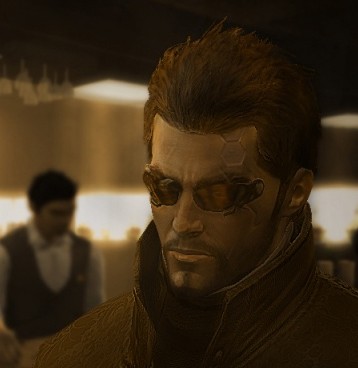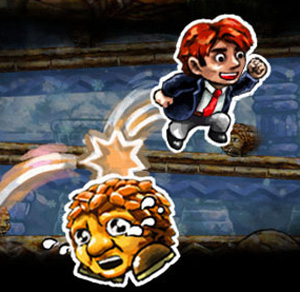An article published in The Atlantic magazine has recently made me rethink about what draws someone to gaming.
In the article the creator of Braid, Jonathan Blow, envisages the gaming platform as being a vehicle for a higher purpose other than the straight forward platformer’s, beat-em-up’s and simulations that we’re used to.
I get that.
 Gaming is more enticing when it has depth to its story. Those that challenge us to make judgement calls like in Deus Ex: Human Revolution or in the Mass Effect series really make the experience personal. You chose to save one person over another, the greater good perhaps, which makes that decision unique for your experience. It might restructure the entire storyline.
Gaming is more enticing when it has depth to its story. Those that challenge us to make judgement calls like in Deus Ex: Human Revolution or in the Mass Effect series really make the experience personal. You chose to save one person over another, the greater good perhaps, which makes that decision unique for your experience. It might restructure the entire storyline.
The storylines of Call of Duty, Battlefield and Need for speed certainly aren’t going to win Mr Blow over. They’re not particularly original ideas even if then have been scripted and executed at the highest level.
I think Jon wants to go further than just exploring a storyline in his next title ‘The Witness’.
He wants depth, meaning and an experience that challenges a person’s perspective rather than being a button basher.
Rather than subjecting a gamer to the next lone survivor zombie apocalypse or being the only person who can chuck a sodding golden ring in to a volcano he wants the user to question their environment, ideals, way or thinking and possibly way of life.
 Whilst I applaud Braid for being an intelligent platform-puzzler I can’t help feel that the message has been shoe-horned in at the end. It’s not going to change my philosophy or challenge my thinking either. Maybe I’ve missed the point entirely.
Whilst I applaud Braid for being an intelligent platform-puzzler I can’t help feel that the message has been shoe-horned in at the end. It’s not going to change my philosophy or challenge my thinking either. Maybe I’ve missed the point entirely.
My problem is that I think Jon Blow is over-thinking the gaming medium and its current audience.
To see the gaming platform as a medium to rival artworks, books and theatre is one thing, but to think that you can question a psychological perception is another. We’re not talking moral dilemmas, we’re talking about probing a psyche. Jon’s to be precise.
I like engaging narratives but I don’t want to come away from a game wondering if I made the right choices or said the right things to a person I met that day.
Gaming is my escapism, my retreat from the real world. If I want a moral lesson I’ll read the bible or Aesop’s fables but I want my game to remain exactly that. A game.
I know that the gaming culture consumes our children and there is an argument that we should be constructing informative and creative options within the games to broaden the minds of those playing them. This would imply that games do have an effect on the individual mind and that we can convey a message through the medium on a whole.
If that’s the case then the industry is screwed.
Do games developers really want to admit that their next title will influence the player and then release this knowing parents will buy this for their child? What happens when you stack this up against titles like Cod, Bully or even Manhunt? Surely it’s admitting that they do have an effect?
 I don’t think they do when they’re in the hands of a mature and experienced mind which the BBFC classifications help us distinguish but the inevitable will happen sooner or later. A parent will buy an 18 title for their twelve year old and the Press will jump on this band wagon in a heart-beat blaming anything in gaming to do with the next atrocity commuted by a juvenile.
I don’t think they do when they’re in the hands of a mature and experienced mind which the BBFC classifications help us distinguish but the inevitable will happen sooner or later. A parent will buy an 18 title for their twelve year old and the Press will jump on this band wagon in a heart-beat blaming anything in gaming to do with the next atrocity commuted by a juvenile.
I think it’s wiser to stick with the K.I.S.S. principle. Keep It Simple, Stupid.
Don’t make gaming something it’s not or make it aspire to be more than it needs to be.
It’s just a game.
